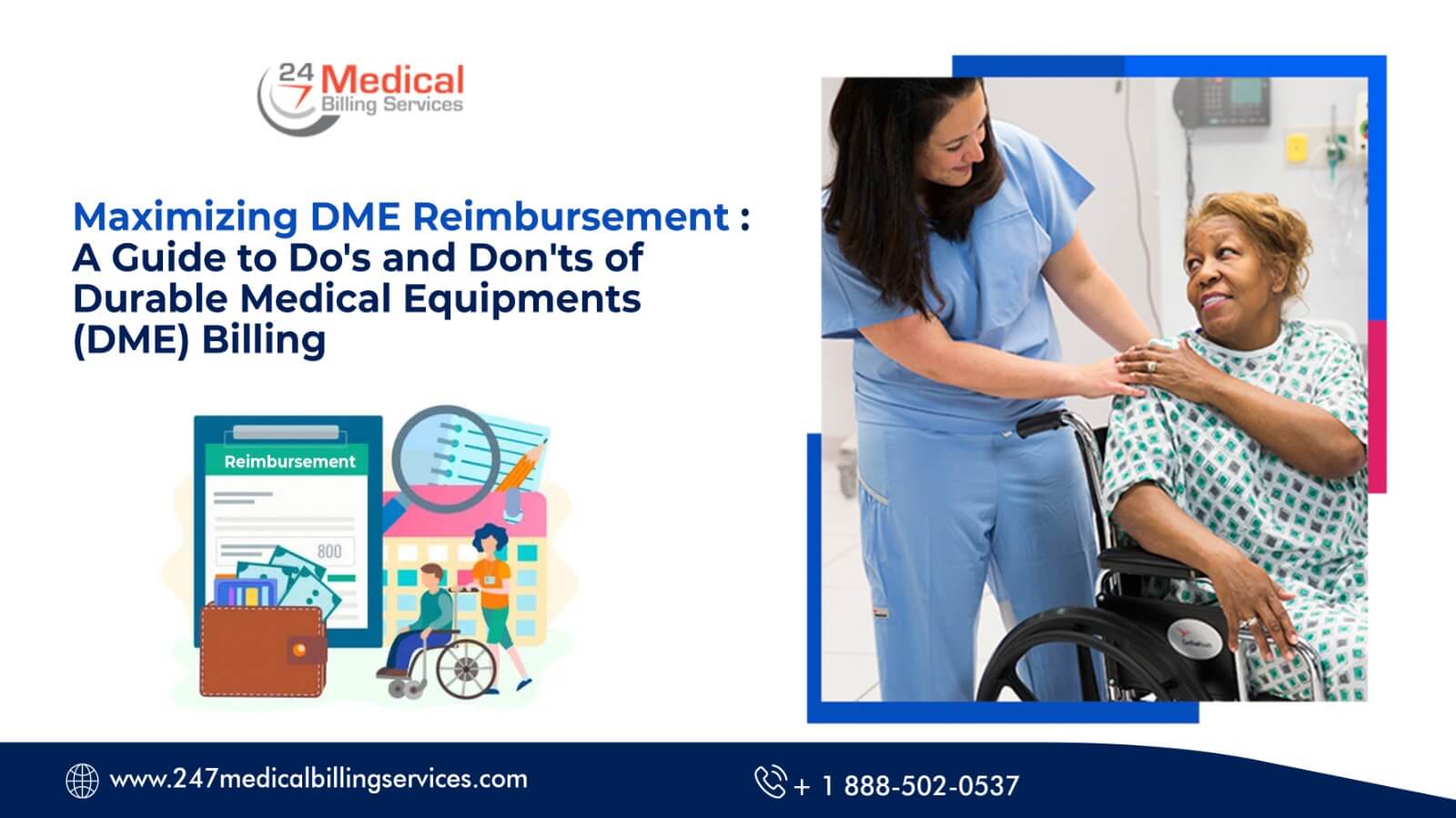
Maximizing DME Reimbursement: A Guide to Do's and Don'ts of Durable Medical Equipment (DME) Billing
Durable Medical Equipment has been undergoing ongoing modifications due to alterations in regulatory compliance. One of the remarkable challenges is keeping up with the ever-changing DME billing landscape. DME accounts for about 2% of Medicare's annual spending. When it comes to billing Durable Medical Equipment, one of the most stressful factors for healthcare professionals is denials. Not all DME billing claims result in revenue reimbursement for healthcare providers. In fact, DME billing receives the most denials of any type. It could be for various reasons and factors, but all of these denials significantly impact revenue payments in the revenue cycle management process. That’s why there is a need to know the dos and don'ts of durable medical equipment (DME) billing to maximize DME reimbursement.
Do's of Durable Medical Equipment (DME) Billing:
#1`: Need for Proof of “Reasonable and Necessary” Supplies
Each document you submit with your claim must demonstrate medical necessity. You must provide Medicare with proof that the item is medically necessary for the patient as the provider. You can submit documents showing that the DME is "reasonable and necessary."
- Medical records from hospitals and doctors
- Prescriptions should be obtained from a medical professional.
- Medical Necessity Certificate signed by the medical professional and DME provider
- Signed and dated progress reports
#2: Use Up-to-Date Codes and Modifiers
You must confirm that the equipment displays the correct codes and encompasses the appropriate modifiers before submitting the claim for payment. Make certain that:
- HCPCS Level II codes correspond to the ordered DME.
- Modifiers and include all relevant item information.
#3: Collection of service fee on-time
You may not realize it, but when a patient tends to leave your medical facility, the possibility of your collection dropping by more than 45% immediately. As a result, once the equipment has been provided, you must ensure that the coinsurance and co-pays, in addition to any past dues and projected deductibles, are collected. Thereby, having a well-rounded check-out process in place is always a good idea to have the likelihood of gathering before the patient is discharged from the facility.
Don'ts of Durable Medical Equipment (DME) Billing:
#1: Don’t underestimate the necessity of a practiced check-in policy
A clear policy followed every time a patient checks in reduces the likelihood of running into DME medical billing issues later. Before proceeding, ensure that your patient understands your payment policies and that all of their information (personal and insurance) is accurately and completely filled out. Even if they are regular patients, it is a good idea to have them review and confirm that their information is still correct each time they visit your practice.
#2: Don’t avoid Missing or Incorrect Information
Claim denials are frequently caused by errors or omissions, which double-checking all fields can easily avoid before actually submitting a claim. Inaccurate or missing patient names, birth dates, addresses, insurance information, sex, treatment dates, and onset can all lead to complications.
Although it does not happen often, information can be accidentally entered into the wrong patient's record. A claim denial will result if DME reimbursement only enter the information provided and do not investigate mismatches in treatments and diagnoses. Unfortunately, these issues can be noticed in busy billing departments. But don’t let that happen.
#3: Don’t stress over claim denials and appeals
If you follow the first few dos and don'ts, you will have significantly reduced your chances of receiving a claim denial. Despite a nearly perfect DME medical billing process, claim denials occasionally occur. The best approach to claim denials and appeals is to hire DME medical billing services that can devote the necessary time to resolving the issue and getting your claim approved. Remember that appeals must be handled promptly or they will be lost.
Make The Right Choice by Outsourcing DME Billing!
By strategizing and outsourcing the billing and claims management process, you can make your DME services more efficient, allowing for a much more effective A/R collection process. You must ensure that DME reimbursement are flowing to maintain a good RCM process. However, there is a need to remember the above mentioned do's and don'ts of durable medical equipment (DME) billing while outsourcing to a reputable 24/7 Medical Billing Services. Our DME medical billing services specialists are available round-the-clock to assist you in improving DME billing efficiency.
Read more: DME Billing: Solving The Improper Payment Rate Puzzle

.png)